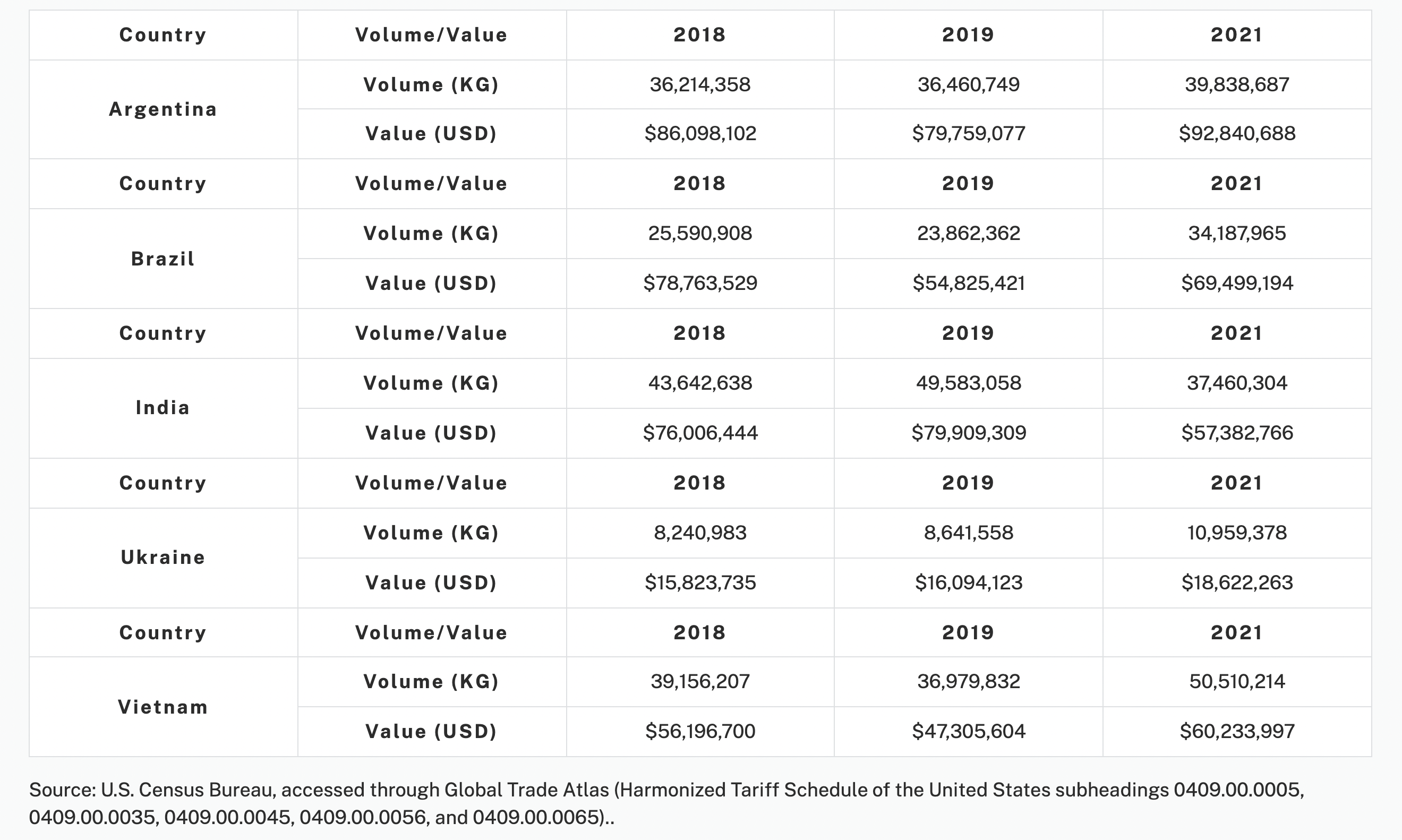Program Will Unlock Approximately $1 Billion for Meat and Poultry Processors and Food Supply Chain Infrastructure
Release & Contact Info
Press Release
Release No. 0268.21
Contact: USDA Press
Email: press@usda.gov
WASHINGTON, Dec. 9, 2021 – U.S. Department of Agriculture (USDA) Secretary Tom Vilsack today announced USDA is deploying $100 million under the new Food Supply Chain Guaranteed Loan Program to make available nearly $1 billion in loan guarantees; these loan guarantees will back private investment in processing and food supply infrastructure that will strengthen the food supply chain for the American people.
USDA is making the funding available through the American Rescue Plan Act. The program is part of the Biden-Harris Administration’s efforts to address food system challenges dating back decades and further exacerbated by the COVID-19 pandemic. These investments will help essential processing and supply chain infrastructure that will ultimately deliver more opportunities and fairer prices for farmers, they will give people greater access to healthier foods, and they will help eliminate bottlenecks in the food supply chain.
“The pandemic exposed vulnerabilities and created extreme disruptions in America’s food supply chain. The reduction in meat processing capacity is just one example of the supply chain bottlenecks that affect small and midsize farmers,” Vilsack said. “Under the leadership of President Biden and Vice President Harris, USDA is investing in ways to improve America’s food supply chain. The funding we’re announcing today will leverage approximately a billion dollars in public and private-sector investments that will significantly expand meat and poultry processing capacity and finance critical food supply chain infrastructure.”
Food Supply Chain Guaranteed Loan Program
Through the Food Supply Chain Guaranteed Loan Program, USDA will partner with lenders to guarantee loans of up to $40 million to help eligible entities expand meat and poultry processing capacity and finance other food supply chain infrastructure. Lenders may provide the loans to eligible cooperatives, corporations, for profits, nonprofits, Tribal communities, public bodies and people in rural and urban areas.
USDA Rural Development (RD) will administer the loans. Funding may be used to:
- start-up or expand food supply chain activities such as aggregating, processing, manufacturing, storing, transporting, wholesaling or distributing food.
- address supply chain bottlenecks.
- increase capacity and help create a more resilient, diverse and secure U.S. food supply chain.
USDA is accepting electronic applications from lenders through the Food Supply Chain Online Application System until funds are expended. Paper applications will not be accepted. To access the online application system, lenders must submit a request to rdfoodsupplychainloans@usda.gov. For more information, visit www.rd.usda.gov/foodsupplychainloans or see the notice published in the Dec. 9 Federal Register.
USDA Rural Development encourages applications for projects that advance the recovery from the COVID-19 pandemic, promote equitable access to USDA programs and services, and reduce the impacts of climate change on rural communities. For more information, visit www.rd.usda.gov/priority-points.
Background
This funding announcement follows the Biden-Harris Administration’s September announcement about the steps it is taking to address concentration in the meat-processing industry. It adds a new commitment of $100 million for guaranteed loans on top of the previously announced $500 million investment to expand meat and poultry processing capacity.
These efforts are part of USDA’s Build Back Better Initiative, a comprehensive plan to invest $4 billion to strengthen the resiliency of America’s food supply chain while promoting competition.
As co-Chair of the Biden-Harris Administration’s Supply Chain Disruptions Task Force, Secretary Vilsack and USDA have brought together industry, labor and federal partners to address the short-term supply chain disruptions arising from the Administration’s strong economic recovery. This is one of several key steps that USDA is taking to build a more resilient supply chain and better food system and to increase competition in agricultural markets. These steps are pursuant to President Biden’s Executive Order on Promoting Competition in the American Economy and his Executive Order on America’s Supply Chains. This initiative will support key supply chain infrastructure investments to expand and scale existing capacity, as well as support long-term investments in new operations.
Rural Development provides loans and grants to help expand economic opportunities, create jobs and improve the quality of life for millions of Americans in rural areas. This assistance supports infrastructure improvements; business development; housing; community facilities such as schools, public safety and health care; and high-speed internet access in rural, tribal and high-poverty areas. For more information, visit www.rd.usda.gov. If you’d like to subscribe to USDA Rural Development updates, visit our GovDelivery subscriber page
.
USDA touches the lives of all Americans each day in so many positive ways. Under the Biden-Harris Administration, USDA is transforming America’s food system with a greater focus on more resilient local and regional food production, promoting competition and fairer markets for all producers, ensuring access to safe, healthy and nutritious food in all communities, building new markets and streams of income for farmers and producers using climate-smart food and forestry practices, making historic investments in infrastructure and clean energy capabilities in rural America, and committing to equity across the Department by removing systemic barriers and building a workforce more representative of America. To learn more, visit www.usda.gov.
https://www.usda.gov/media/press-releases/2021/12/09/usda-launches-loan-guarantee-program-create-more-market




